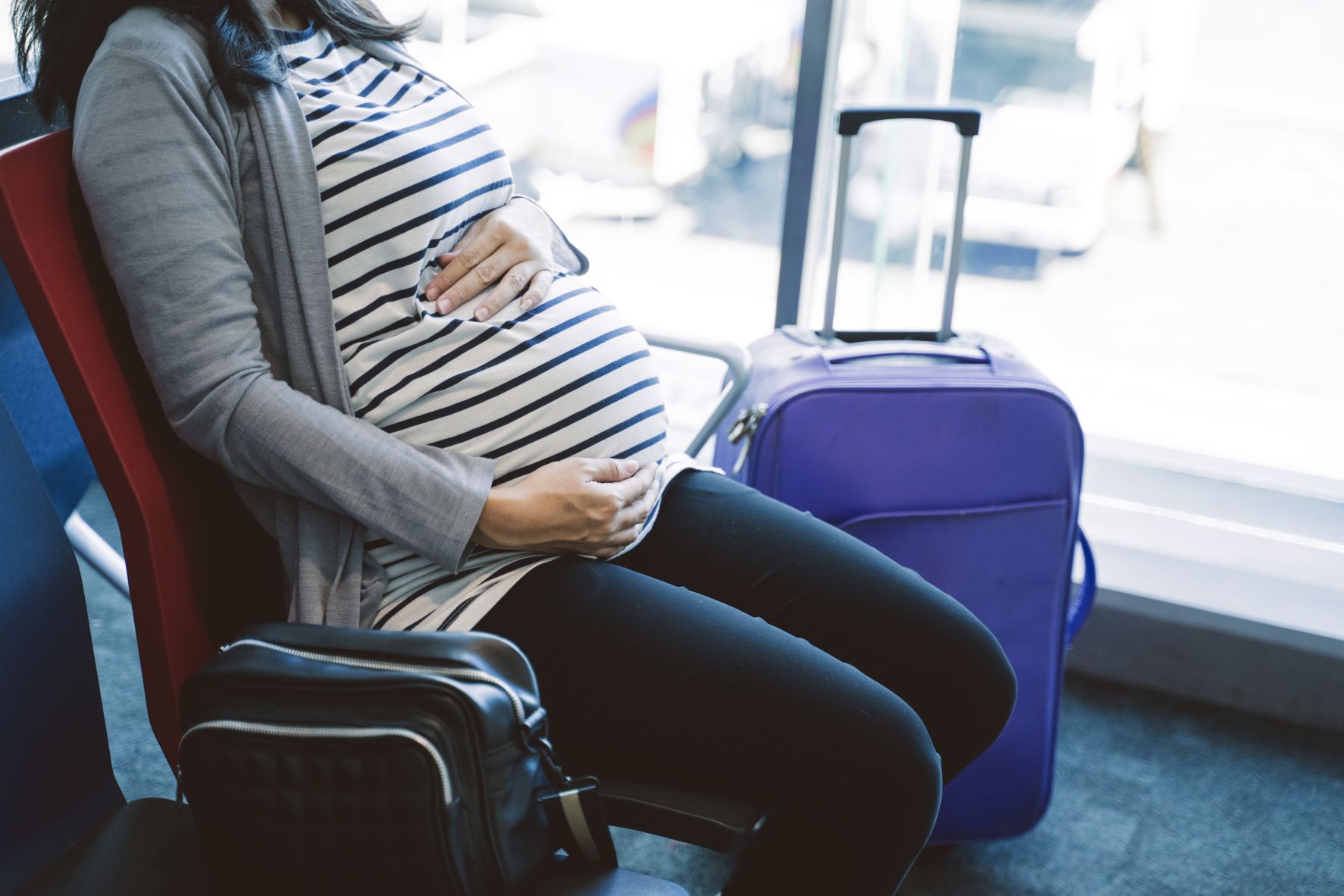
For many women, travelling is part of their lives, both professional and personal. Pregnancy should not stop you travelling, and it doesn’t have to if it is carried out safely. Here we have gathered advice on what you should be aware of when travelling during pregnancy.
Before you go: At the doctor’s
The first thing you should do is seek advice from your doctor whether it’s safe to travel. This will depend on how far into the pregnancy you are, as generally the safest time to travel is the second trimester. During the first trimester, the risk of miscarriage is higher, and in the third trimester it is getting close to delivery. Some airlines, cruise lines and ferries may also not take pregnant women onboard who are near their term date or they might require a note from your doctor that the travel is safe.
Once this is established, you should ask your physician about specific travel advice and vaccinations for the place you are going. If you are going to a country with good medical facilities, then this will be less relevant, but if you are going somewhere with diseases you are not vaccinated for, you might ought to consider not going. This is because many vaccines that use live bacteria or viruses are not entirely safe for pregnant women. However, it must be stressed that if you cannot avoid travelling to a country where you will need to be vaccinated, the vaccinations are still safer than getting the illness.
Some diseases like Zika and Malaria can be dangerous for mother and baby, and travel to areas where mosquitos carry these diseases is not advised. Although anti-malaria tablets do exist, not all are recommended for pregnant women. If you have to travel to a malaria-prone area, make sure your doctor prescribes tablets for the specific type of malaria that is in the area you are going for that is safe for pregnant women.
You should also ask your doctor to give you a copy of your maternity medical records. These will be good to have in case you need to seek medical assistance at your destination.
Before you go: Planning and packing
After you have been given the go-ahead from your doctor, it is time to plan your trip properly and start packing.
The first thing to do is to get adequate travel insurance that includes any coverage for pregnancy-related incidents. This can include medical evacuation depending on the medical facilities in the country. Also find out where the nearest medical facilities are to your lodgings and have their contact details with you in case something happens.
After this is done, you should read travel advice for the destination country to know what to do and what not to do. This should guide the planning of your trip.
Keep in mind that as a pregnant woman, you should let your body dictate what you can and cannot do, and how many activities to plan. A general rule of thumb is to plan activities where there are toilets nearby, safe food and drink in the vicinity, as well as ample time for relaxation.
Try to plan your trip so there will be the least amount of hassle upon arrival. After a long flight, it is better to have a taxi from a reputable company waiting for you at the airport and a pre-booked hotel in a calm and safe location. Plan to travel so you leave and land at the times that are most convenient and pleasant for you, and plan to wear loose clothing for the flight. Also make sure to bring all the medicines and vitamins you will need for the duration of your trip.
During your flight
When you are on the flight, try to get an aisle seat. Although you might love to gaze out of the window, this will not be as pleasant if you have to go to the toilet and your route is blocked by sleeping travellers.
The risk of blood clot is also higher during pregnancy, so make sure to move around every 30 minutes. This is especially important if your trip is more than four hours long.
Research suggests that on a 10-hour flight, women can lose up to 8% of their bodily water so the final tip is to stay hydrated! Hydration can help avoid the swelling of feet and hands and can also help against fatigue. If you combine this with light snacks and food for your trip, you should be happy, hydrated and full when you land.
At your destination
The main thing to look out for is food- and water-borne conditions, like diarrhoea. This is unpleasant enough when you’re not pregnant, but some medicines to treat this are not safe when you’re pregnant. Make sure that any food you eat has been properly and thoroughly cooked, and that what you drink is safe. Avoid drinking water from the tap and if you do get ill, seek medical attention.
The foods you should avoid are soft cheeses and blue cheeses, raw or partially cooked eggs, pate, raw or undercooked meat, cold cured meats, liver, game, vitamin and fish oil supplements, or any supplement containing vitamin A, shark, swordfish or marlin. Other types of fish are mostly fine, but be careful with tuna as they contain more mercury than other fish, and try to not eat more than two portions of oily fish a week.
You can eat shellfish as long as they have been properly cooked, and you can eat sushi as long as the fish has been frozen first. However, in some places this might be difficult to know for sure, so to stay on the safe side, try to avoid sushi. You can eat milk and yoghurt as long as it has been pasteurized. Be aware that some ice cream has egg in it and try to avoid this. Make sure to wash all fruits, vegetable and salads with clean water to remove dirt.
Beyond food restrictions, you should know that your skin might be more sensitive when you are pregnant, and hence more prone to sun burn. Make sure to bring a good and strong sun lotion and use it vigilantly.
The main risks affecting pregnant women while travelling beyond the above, is traffic collisions. Make sure that any vehicle you get into has a seat belt and use this to keep yourself and your baby safe. Try to only use reputable taxi companies.
Upon return
When you return from your travel, you should go for a check-up at your doctors to make sure that everything is fine with both you and the baby.
People travelling to Zika prone areas who have pregnant partners should practice safe sex for 2-3 months after they come back.
Informational websites:
- Travelling while pregnant: https://www.nhs.uk/conditions/pregnancy-and-baby/travel-pregnant/
- Anti-Malaria tablets when pregnant: https://www.nhs.uk/common-health-questions/medicines/can-i-take-anti-malaria-medication-if-i-am-trying-for-a-baby/
- Information on diseases for travellers w precautionary measures: https://www.iamat.org/
- Gynopedia – Open resource wiki for sexual, reproductive, and women’s health care across the globe – https://gynopedia.org/

